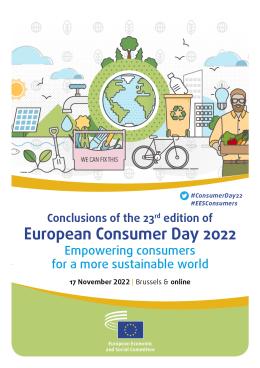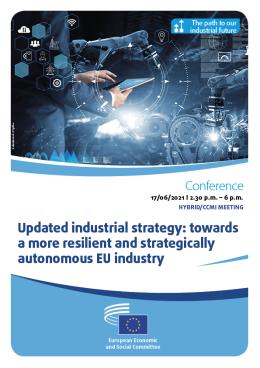European Economic
and Social Committee
Economia circulară
Tranziția către o economie circulară este o prioritate pe agenda CESE ca soluție de combatere a crizei climatice și de protejare a planetei noastre. Este o oportunitate excelentă pentru societatea civilă, deoarece poate contribui la:
- sporirea competitivității industriei europene;
- stimularea creșterii economice durabile;
- crearea de noi locuri de muncă.
Modelul liniar de producție și consum („luăm‑fabricăm‑aruncăm”), care încă domină economia noastră în prezent, nu numai că duce la irosirea resurselor, ci și subminează lupta împotriva schimbărilor climatice. Spre deosebire de economia liniară, o economie circulară este un concept regenerativ și restaurator care se axează pe crearea și păstrarea valorii economice, abordând provocările globale de mediu, cum ar fi schimbările climatice, pierderea biodiversității și poluarea, generând, în același timp, beneficii economice.
Vestea bună este că tranziția circulară este deja o realitate la fața locului. Părțile interesate din societatea civilă, inclusiv întreprinderile, sindicatele, mediul academic și comunitățile de cunoaștere, organizațiile de tineret, precum și ONG-urile și alte grupuri de interese creează și pun în aplicare numeroase inițiative circulare la nivel local și regional. Catalizarea soluțiilor circulare și a poziției de lider a părților interesate relevante reprezintă cea mai bună oportunitate pentru Europa de a accelera tranziția către o economie circulară.
Ca atare, Platforma europeană a părților interesate privind economia circulară, o inițiativă comună a CESE și a Comisiei Europene, este o platformă creată în 2017 pentru a reuni comunitatea economiei circulare din Europa. Platforma bazată pe contribuția părților interesate sprijină tranziția Europei către o economie circulară prin promovarea dialogului, schimbul de cunoștințe și de bune practici.









